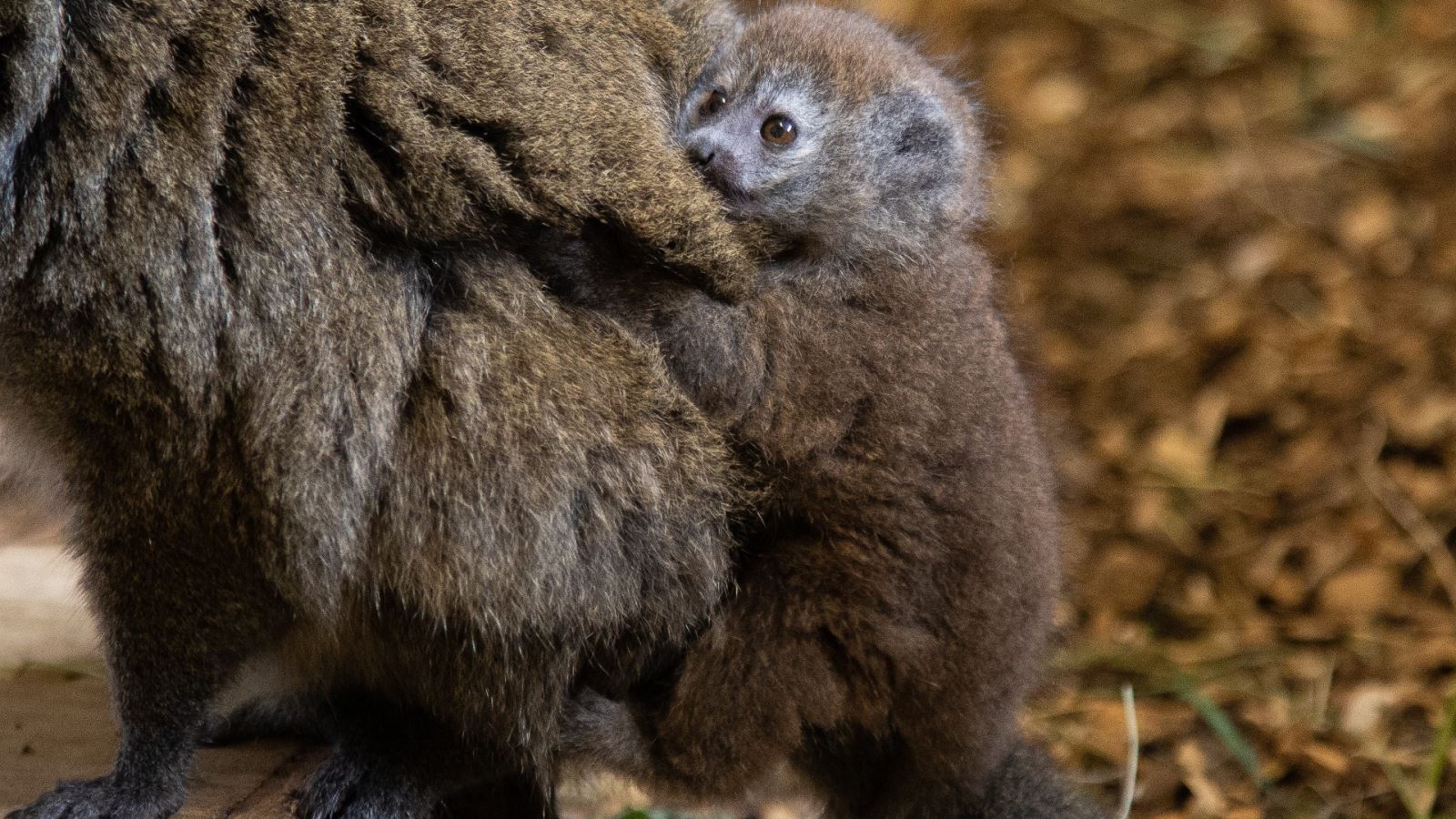A tiny lemur which is crucial in helping to ensure the survival of its species has been born at Wild Place Project.
It is an Alaotran gentle lemur which weighs less than an apple and came into the world a few weeks ago.
Every infant gentle lemur helps to safeguard the future of the species which is classified as Critically Endangered by the International Union for Conservation of Nature.

Image: Lake Aloatran gentle lemur at Wild Place Project. Credit Jordan Jones.
Joe Norman, Animal Team Leader at Wild Place Project, said: “We are thrilled by all births here but this one is especially significant.
“Because of the difficulties gentle lemurs are facing in the wild, the success of the captive breeding programme is vitally important.
“There are currently just 71 gentle lemurs known to exist in zoos across the world and only 17 in the UK, meaning that Bristol Zoological Society has 14 per cent of the ex-situ population, more than any other institution.”
The new gentle lemur is the third to be born to mother, Tiana, and father, Roa, in the past three years at Wild Place Project -- recently named South West Tourism Excellence Awards’ ‘Large Visitor Attraction of the Year’.
Joe said: “The infant is making great progress and is really healthy. Tiana is now an experienced mum and is looking after it really well.”
Keepers do not yet know whether the new lemur is male or female and it could be six months before they find out.
Joe said: “The infant is clinging onto its mum and will occasionally be passed on to its dad so visitors stand a very good chance of seeing it. But it will be a couple of months before it starts to move around on its own.”
Gentle lemurs are quite small animals and even when fully grown the new infant will only be between 30 and 40 centimetres in length.
In the wild, these lemurs are found around the largest lake in Madagascar, Lake Alaotra, and are the only primate to have adapted to living in reed and papyrus beds using their hands, feet and tails for grasping and balancing.
But they are Critically Endangered because the areas where they live are being converted into rice paddy fields. The marshlands around Lake Alaotra have also been burnt so people can catch fish and create areas to graze cattle. Gentle lemurs are also targeted by hunters who catch them for food and to keep as pets.
All lemur species are native to Madagascar, which is one of the world’s most important hotspots for biodiversity. But the lemurs’ forest habitat is being destroyed for slash and burn agriculture, charcoal production and mining. They are also threatened by illegal hunting.
Bristol Zoological Society is working to protect lemurs and other wildlife in north-western Madagascar through the protection and restoration of their habitats. The Society has recently been awarded funding to continue its work protecting lemurs living in shade trees planted in cacao plantations.
In addition, the Bristol Zoological Society team is continuing to evaluate reforestation efforts inside Sahamalaza-Iles Radama National Park, its long-term field site.
Bristol Zoological Society is also involved in building a new field station in Madagascar for conservationists studying lemurs in the wild.
The Ankarafa field station in the north-western Sahamalaza-Iles Radama National Park will provide a research base for conservationists and scientists who are working to help lemurs, of which more than 90 per cent are threatened with extinction.
Wild Place Project and Bristol Zoo Gardens are run by Bristol Zoological Society which is a conservation and education charity and relies on the generous support of the public not only to fund its important work at both zoos, but also its vital education and community outreach programme.
In March last year the Society launched the BZS Appeal to ensure the future of its work ‘saving wildlife together’ following the temporary closure of both its sites in the face of the COVID-19 pandemic.
As school groups can now be welcomed back to both zoos, donations from the appeal fund will support the Education Bursary Fund, to ensure schools and youth groups in disadvantaged areas are able to benefit from visiting Bristol Zoo Gardens and Wild Place Project.
To find out more, or to make a donation, visit https://bristolzoo.org.uk/bzsappeal
Related
Comments
Nobody has commented on this post yet, why not send us your thoughts and be the first?













